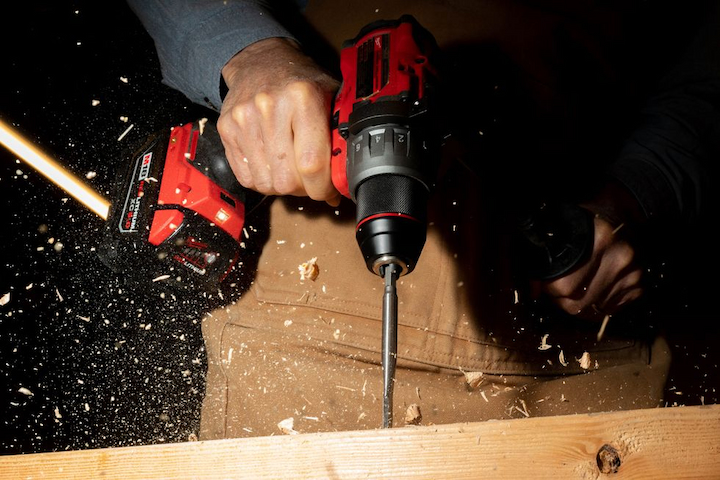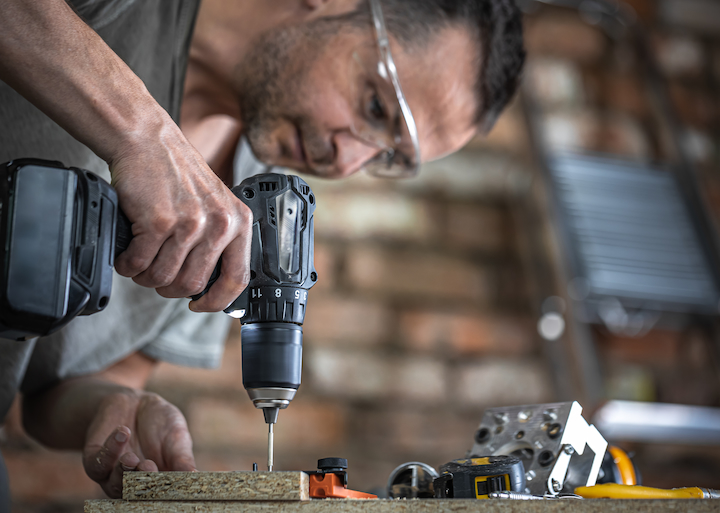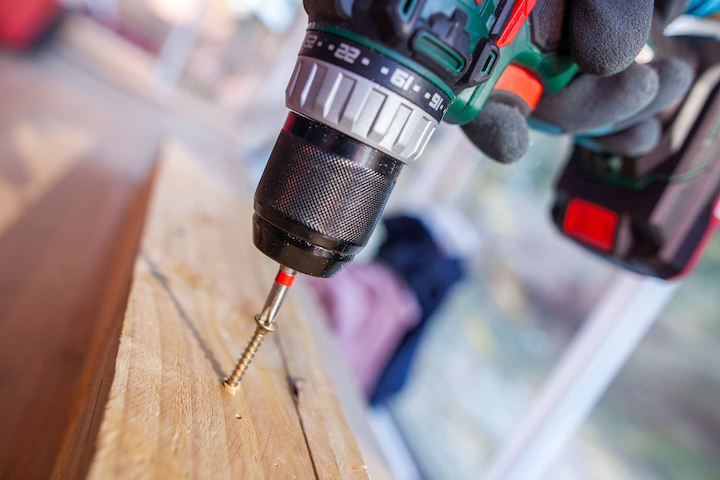Construction, the art of turning blueprints into reality, relies on a vast array of tools to bring structure and form to the imagination. Among these tools, the humble drill stands as a stalwart companion in every builder’s arsenal. Its importance cannot be overstated, for it’s the drill that bores the holes, anchors the fasteners, and shapes the raw materials into a cohesive whole. In this comprehensive guide, we will explore the indispensable role of drills in construction, the various types available, the distinct characteristics of each, and the key considerations for choosing the right drill for your specific needs.
The Crucial Role of Drills in Construction

Imagine a construction site without drills, and you’ll find a world devoid of holes, anchors, and fasteners. Drills are the heartbeat of construction, performing tasks that range from creating openings for electrical wiring to securing heavy machinery. Here’s why drills are indispensable in construction:
- Hole Creation: Drills excel at creating precise holes in various materials, allowing for the installation of electrical conduits, plumbing pipes, and structural anchors.
- Fastening: In the world of construction, fasteners such as screws and bolts are the glue that holds everything together. Drills enable the efficient driving of fasteners into materials, ensuring structural integrity.
- Material Shaping: Whether it’s carving intricate designs on wood or cutting holes in metal, drills with the right attachments transform raw materials into functional components.
- Concrete Drilling: When it comes to drilling into concrete and masonry, a specialized drill, such as a diamond drill, plays a pivotal role in creating openings for windows, doors, and utility lines.
- Versatility: Drills are versatile tools that adapt to various tasks through the use of different attachments, making them essential for every stage of construction.
Now that we’ve established the vital role of drills in construction, let’s explore the different types available and their distinct characteristics.
Types of Drills in Construction

Cordless Drills: Cordless drills are highly portable and versatile, making them a favourite among construction professionals. They are powered by rechargeable batteries and suitable for a wide range of tasks, from drilling holes to driving screws.
Corded Drills: Corded drills provide consistent power without the need for battery changes. They are ideal for heavy-duty drilling tasks and are known for their reliability and longevity.
Hammer Drills: Hammer drills are designed for drilling into tough materials like concrete and masonry. They use a hammering action in addition to rotation to break through hard surfaces.
Impact Drills: Impact drills are specialized tools for driving screws and fasteners with precision. They deliver rapid bursts of rotational force, preventing over-tightening and reducing the risk of stripping screws.
Diamond Drills: Diamond drills are the masters of concrete drilling. They use industrial-grade diamond-tipped bits to cut through concrete and masonry with exceptional precision and speed.
Rotary Drills: Rotary drills are versatile tools suitable for drilling holes in various materials. They can be equipped with different attachments, such as hole saws and spade bits, to accommodate diverse tasks.
Angle Drills: Angle drills are compact and designed for tight spaces. Their unique shape allows them to access confined areas where standard drills cannot reach.
Core Drills: Core drills are specialized for creating large-diameter holes in concrete and masonry. They are commonly used for plumbing and electrical installations.
Distinct Characteristics and Ideal Applications

Each type of drill comes with its own set of characteristics that make it suitable for specific construction tasks:
Cordless Drills: Portability and convenience make cordless drills ideal for general drilling and fastening tasks. They are perfect for projects that require mobility and adaptability.
Corded Drills: With consistent power and reliability, corded drills are well-suited for heavy-duty drilling in materials like hardwood, metal, and masonry. They excel in scenarios where uninterrupted power is essential.
Hammer Drills: The hammering action of these drills makes them indispensable for concrete and masonry drilling. They are commonly used for tasks like anchor installation and demolition work.
Impact Drills: Impact drills are the go-to choice for precision fastening tasks, ensuring screws are driven with accuracy and control. They prevent cam-out and stripping of fasteners.
Diamond Drills: When it comes to concrete drilling, a diamond drill is probably the best choice. Their diamond-tipped bits provide exceptional speed and precision for creating openings in hard materials.
Rotary Drills: Rotary drills are versatile tools that can be adapted to various tasks. They are suitable for drilling holes of different sizes and can accommodate a wide range of attachments.
Angle Drills: Designed for tight spots, angle drills are essential for confined spaces where standard drills cannot operate effectively. They are commonly used in plumbing and HVAC installations.
Core Drills: Core drills are indispensable for creating large-diameter holes in concrete and masonry, making them essential for plumbing and electrical installations in construction.
Choosing the Right Drill: Key Considerations

Selecting the ideal drill for your construction needs requires careful consideration of several factors:
- Task Specificity: Determine the primary tasks your drill will perform. Are you mainly drilling holes, driving screws, or working with tough materials like concrete?
- Power Source: Decide between corded and cordless drills based on your need for portability and power. Corded drills offer consistent power, while cordless drills provide mobility.
- Work Environment: Consider the work environment’s conditions, such as confined spaces or outdoor settings, and choose a drill that can navigate these challenges.
- Attachments and Accessories: Evaluate the availability of compatible attachments and accessories, as they can enhance your drill’s versatility and functionality.
- Budget: Set a budget that aligns with your construction needs and the quality of drill required for the tasks at hand.
- Brand and Warranty: Opt for reputable brands known for durability and customer support. Check for warranty coverage to safeguard your investment.
The Final Word
In conclusion, drills are the unsung heroes of construction, transforming raw materials into finished structures with precision and efficiency. With an understanding of the various types of drills and their ideal applications, along with careful consideration of your specific needs, you can confidently choose the right drill to drive your construction projects toward success. Whether you’re a professional builder or a DIY enthusiast, a well-selected drill is your key to unlocking the potential of construction creativity.